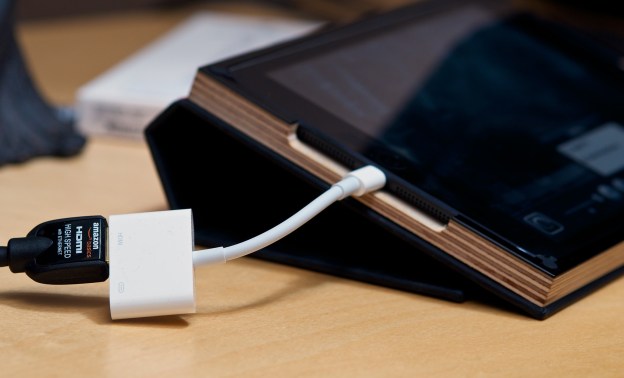
Apple’s new Lightning AV adapter, which allows iPhones and iPads alike to send out a video feed to TVs via HDMI, isn’t your ordinary cable. While most cables simply adapt the device to send out an HDMI-compatible signal, Apple’s adapter instead has a small ARM-powered computer inside of it that uses Airplay to convert the output to your TV. While this may seem pretty cool, the problem is that the adapter’s output isn’t even the 1080p resolution Apple claims.

However, the problem is that Apple’s adapter doesn’t do what it advertises on its own product page: output at a 1080p resolution. According to the people who tore apart the adapter, Apple’s Lightning AV adapter only reaches a maximum resolution of 1600×900 pixels, not the 1920×1080 pixel resolution Apple says it can reach. Several users have also reported issues such as artifacting and other display problems occurring with their adapters. Worst of all, it is believed the issues are hardware related, and even if they weren’t only Apple could fix them. As a result, owners of the high-priced AV adapter have to go to Apple for a solution. On the bright side, at least Apple gives you more than a few wires for the whole $50 the adapter costs, and they’ll likely be quick to fix it now that word is spreading fast about the technological fluke.
Editors' Recommendations
- The DOJ has sued Apple over the iPhone. Here’s what it means for you
- How to find and use transcripts in Apple Podcasts
- Hands-on with the Belkin iPhone Mount with MagSafe for Apple TV 4K
- The OnePlus 12 has one big advantage over Samsung and Apple
- I need to change how I use Apple tech in 2024. Here’s how I’m going to do it


